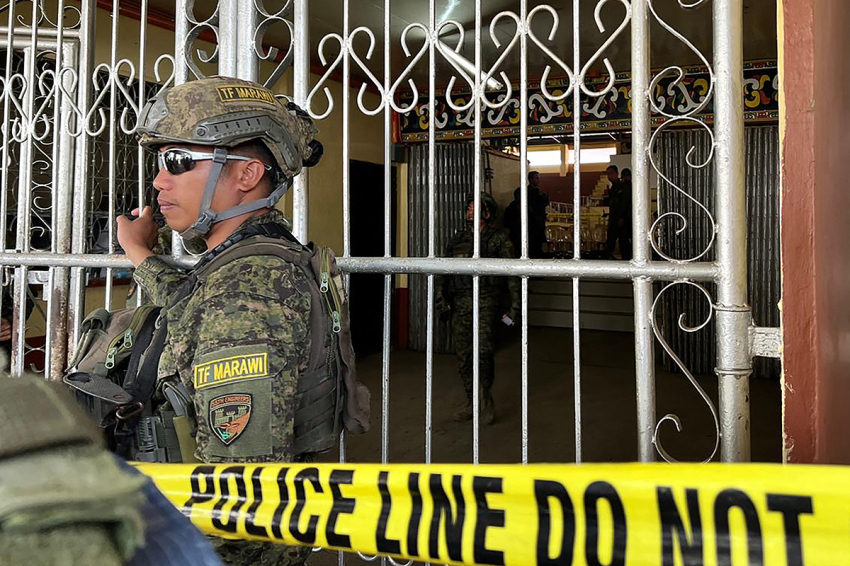4 killed in church bombing in Philippines, ISIS claims responsibility

Four people were killed and over 50 injured in a bombing at a Catholic Mass being held on Sunday morning at the Mindanao State University gymnasium in Marawi City, Philippines, according to media reports.
ISIS claimed responsibility for the attack, stating it targeted a “large gathering of Christian disbelievers” in Marawi, a predominantly Muslim city, according to the SITE Intelligence Group, which monitors extremist group activities online, CNN reported.
Lanao del Sur province Governor Mamintal Adiong Jr. said more than 40 individuals were receiving treatment at a local government hospital, with others treated for minor injuries at the university’s infirmary.
The attack coincided with the start of Advent, a period leading to Christmas when Mass attendance typically increases.
Philippine President Ferdinand Marcos Jr. condemned the attack on social media, describing it as “senseless and most heinous,” and attributed it to “foreign terrorists,” EuroNews reported. He assured the public that additional security personnel were deployed to respond to the incident.
The United States also condemned the attack. State Department Spokesperson Matthew Miller expressed solidarity with the Philippines, reaffirming the U.S.’ commitment to standing against such acts of violence.
Mindanao, known for its significant Muslim population, has a history of insurgency and extremist violence. In 2017, the city of Marawi was besieged by ISIS-affiliated militants, a conflict that displaced over 350,000 residents and lasted five months.
Brig. Gen. Allan Nobleza, the regional police commander, suggested the Daulah Islamiyah-Maute Group might be behind the bombing. This speculation follows the death of 11 group members, including the group leader in Lanao del Sur, in a recent encounter with the Philippine Army, hinting at possible retaliation, according to the BBC.
Armed Forces Chief Romeo Brawner also acknowledged the possibility of the bombing being a retaliatory act.
Officials believe a grenade or an improvised bomb caused the explosion. Photos circulating on social media show the aftermath inside the gymnasium, with scattered chairs and debris, but no significant structural damage to the building.
Mindanao State University expressed its horror at the violence, emphasizing that such acts have no place in civilized society, especially in educational institutions. The university has suspended all academic activities and increased security measures on campus.
Mindanao’s history of insurgency includes a 2012 agreement between Manila and the country’s largest Muslim rebel group to establish an autonomous region, with the first elections for the regional assembly held in 2022. Despite this, sporadic violence continues.
President Marcos Jr. and Defense Secretary Gilberto Teodoro vowed to bring the perpetrators to justice. Security has been heightened across Manila and the southern region, with increased police presence and Coast Guard inspections at ports.
The incident has raised concerns about the safety of religious gatherings in the region, particularly as the country enters a period of heightened religious activity. The Philippine government and security forces remain on high alert to prevent further attacks.



























